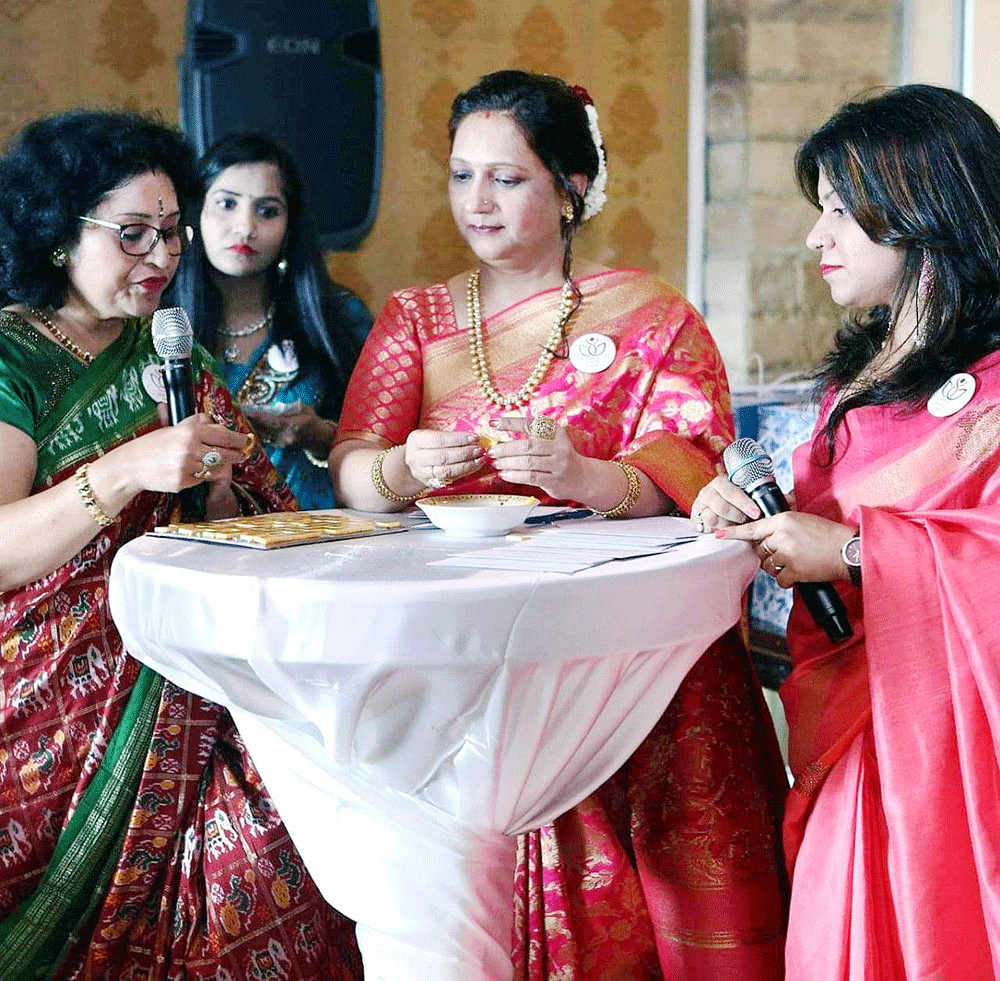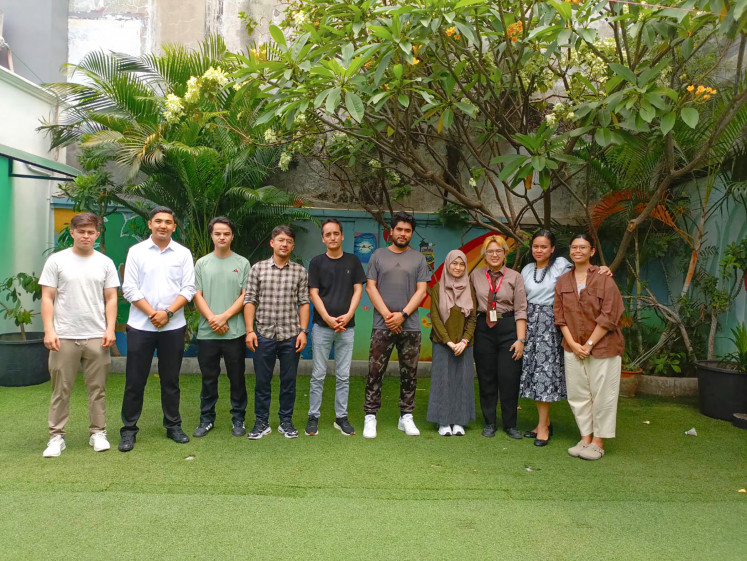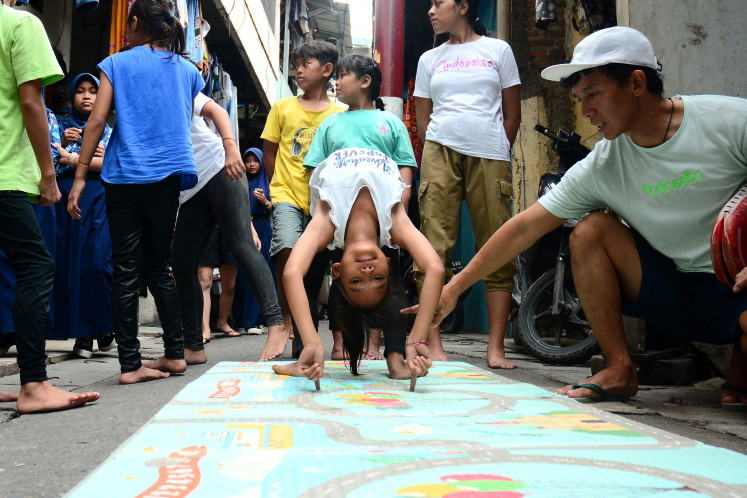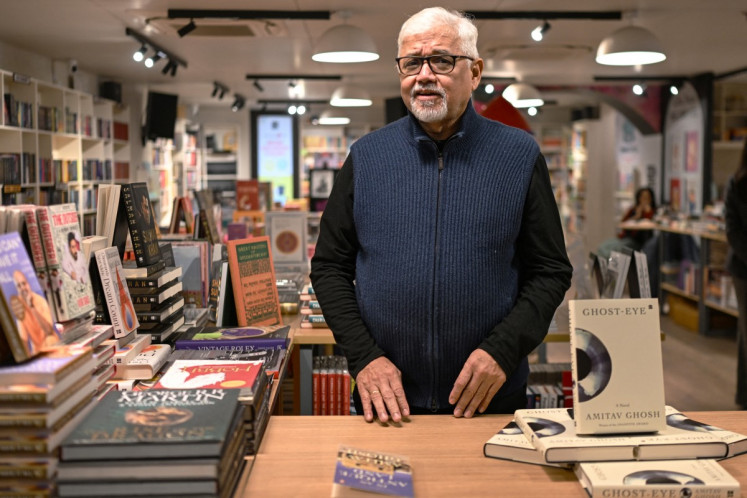Popular Reads
Top Results
Can't find what you're looking for?
View all search resultsPopular Reads
Top Results
Can't find what you're looking for?
View all search resultsSaree Speak empowering women through the beautiful garment
A shared love for saris has more than just united a group of women — it has encouraged them to express their feelings and showcase their hidden talents.
Change text size
Gift Premium Articles
to Anyone
T
wice a year, Ritu Chawla and her friends wear their best saris and meet up in Jakarta. Unlike a typical hangout, these gatherings involve singing and dancing.
The women are part of Saree Speak, a community of sari lovers whose Facebook page has garnered 91,520 members from countries like India, the United Arab Emirates and the United States. Through its activities, Saree Speak encourages women to wear the sari more often.
“The sari is an outfit that shows the perfect amount of your body because it can hide what you want and show off what you want,” said Ritu, the head of Saree Speak Jakarta.
“It’s the perfect outfit for a woman to wear.”
Ritu said Saree Speak activities in Jakarta were aimed at accommodating women, both working moms and housewives, who were in need of “me time”.
“There are so many ladies in the group who are highly educated and professionally qualified. Some of them are also very talented. Some have a good voice, some are good dancers and painters.”
Ritu started the Jakarta chapter after a friend added her to the Saree Speak group.
“I started the Saree Speak group in Jakarta, keeping in mind I would be establishing a common platform where there is no concern of religion, no involvement of countries.”
Saree Speak was founded in April 2016 by Vini Tandon, a housewife in Goa, India. Vini had previously joined other sari-related groups, namely 365 and Kai Thari.
“Inspired by these two groups, I decided to start a group of my own for the sake of motivating myself to wear saris more often,” Vini said.
“When you share with others, there is always a bond. They copy you and you copy somebody else. It is a like starting a whole trend.”
When asked why she chose to create a group on the sari, Vini said: “Everything else was done and became very popular already. Salwar kameez had turned into palazzos, frocks had turned into dresses and gowns [...] and I thought the sari had taken a back seat.”
Starting with a small number of members, Saree Speak began growing in popularity in 2017, amassing 17,000 members.
The group also encourages women to post pictures of themselves with a caption of four to five sentences on the story behind their sari. “They write poems, some of them dance. I have noticed people have turned into writers, literally.”
As Vini noted, Saree Speak has become a platform for women to build their confidence.
“This group encourages women to come out of their closets and bedrooms,” Vini said.
“These women meet in groups and women are complimenting each other. Just making another woman feel good, you feel great. A common woman who has never been complimented on her looks steps out, wears a sari and gets complimented, which can make her feel ecstatic.”
Vini creates a theme every month to keep things interesting.
“One theme I organized recently was ‘Sari with a Forehead Kiss.’ Some were getting close to their husbands. There was a bit of romance in their lives, and many thanked me for this”.
Vini intends to keep the group non-commercial. “Every post has to be approved. We have set rules and guidelines. We don’t accept pictures with children because we don’t want to take responsibility for their exposure. We don’t accept commercial and promotional posts.”
The sari, the world’s oldest unstitched garment, is typically 6 meters long and wrapped around the waistline, with one end draped around the shoulder. History claims that it is the women of the Indus Valley civilization who wore the garment and that it was originally made out of cotton.
The sari is made based on the Hindu belief that it is impure to stitch a cloth. Saris can be made of different materials such as silk, organza, georgette and chiffon. It can be tied in many different styles depending on one’s preference.
Saree Speak will have a global meetup on Dec. 29. Fifteen cities and regions across the globe — including Jakarta, Dubai, Doha, New Jersey and New York — will hold simultaneous meetups about creating a global system.
Aside from participating in the global meetup, Saree Speak Jakarta is preparing a handful of interesting events for next year. There will be a health discussion featuring two doctors as speakers.
“Many ladies are into their 40s so many will be starting menopause. The doctors can give a short talk and give some tips for the ladies,” Ritu said.
The Jakarta chapter will also hold a sari-draping session in which mentors will lead a discussion on how to best wear and tuck the sari.
“If there is anything for a cause, like a marathon in Jakarta, if we go, we will be dressed in cotton saris,” Ritu said with excitement.











